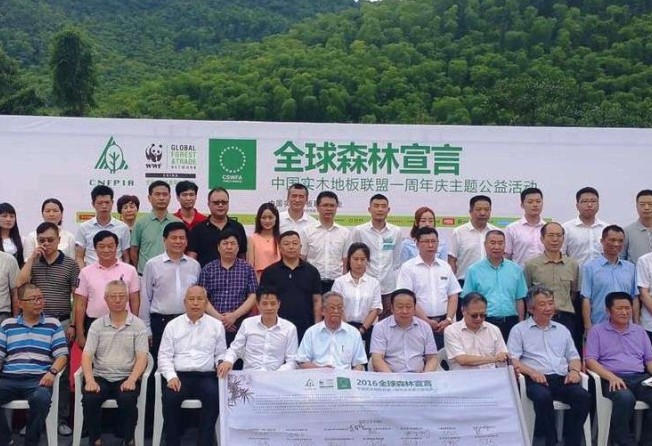
Overseas NGOs in China uneasy about new oversight law
In two months, the mainland adopts new rules on how thousands of non-governmental groups can operate, but confusion reigns in the sector

Overseas non-governmental organisations on the mainland are feeling growing unease about their future with just two months to go until a new law comes into effect giving the police broad powers to regulate the sector.
Released in April, the Law on Management of Domestic Activities of Overseas Non-governmental Organisations stipulates such NGOs must register with and obtain approval for their annual plans from police rather than the civil affairs authority, which had previously overseen the sector.
Under the rules, registered overseas NGOs that receive the go-ahead for their annual activities will still need to seek approval for short-term projects – as will unregistered groups doing one-off activities on the mainland.
Some overseas NGO workers said the registration demands were so complicated, expensive and time-consuming that it would be impossible to meet them by the January 1 deadline.
There are thousands of overseas NGOs on the mainland and most of them have not registered with the authorities. “In the past the government turned a blind eye to the multitude of illegal overseas NGOs, but this [law] has brought the issue to the fore,” a former employee of an international medical NGO based in Yunnan ( 雲南 ) province said. “The police will adopt strict approval rules as the Chinese government is intensifying control over overseas NGOs.”
Since the draft law was released last year, the United States, Canada and the European Union have voiced concerns that the rules could drive many groups out from the mainland.
Hong Kong NGOs have also expressed their concerns. In a survey released by the China Philanthropy Research Institute and China Global Philanthropy Institute earlier, many non-governmental organisations based in the city and working over the border said they felt alienated and uncertain after the law was passed in April – especially as the law categorised NGOs in Hong Kong, Macau and Taiwan as overseas groups even though they were based in China.
In face of the queries, the Ministry of Public Security held a seminar in Shanghai on October 14 and invited representatives from nine overseas NGOs and trade associations. Although these organisations picked by the ministry have cosy relations with the authorities, they still said the draft guidelines for the law were vague.
Simone Pohl, chief representative of the Delegation of Germany Industry and Commerce Shanghai, said the guidelines required a lot of paperwork. “Many questions need to be answered and a lot of clarification is still needed,” Pohl said, adding it could take at least four months for overseas NGOs already on the mainland to re-register. “There is uncertainty in regards to both registration and daily operation.”
She said the law had many requirements and restrictions that “could make cooperation with German partners more difficult in the future”. The NGOs represented at the seminar were all operating legally on the mainland, and were from Russia, Germany, the US, Britain, Malaysia, Hong Kong and Taiwan. Five were involved in trade relations, while the rest were working in health care, environmental protection and youth development.
One of the key sticking points is the requirement that each overseas NGO must enlist a government department to be its “business competent authority” before applying for registration.
The representatives said they did not know which departments were qualified to do so and in which specific areas they were allowed to work.
Lo Sze-ping, secretary general of WWF-China, said his organisation was wondering whether existing legal organisations like the WWF still needed to re-register and whether each office had to be approved.
Hao Yunhong, director of the Ministry of Public Security’s overseas NGO management office, said the ministry was preparing a list of qualified partner departments and would release the names soon. The ministry was also consulting with 57 domestic government departments and social organisations to define specific areas the NGOs could work.
The former Yunnan NGO worker said the law was “ridiculous” and most overseas NGOs were unlikely to register because of the high barriers to finding a government partner.
